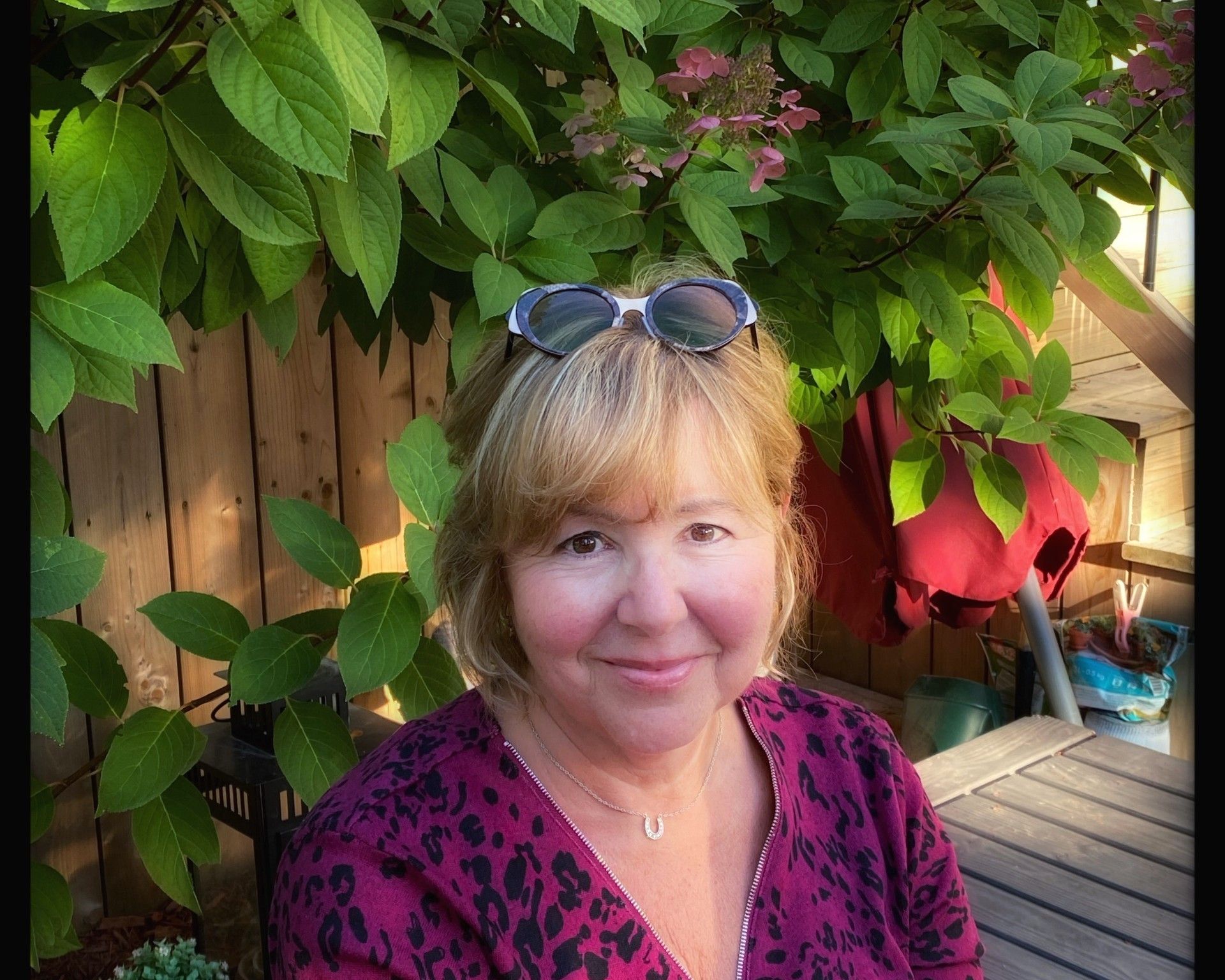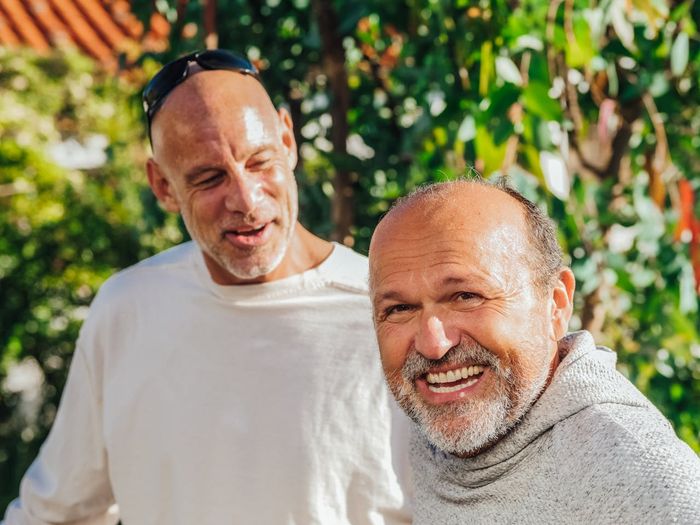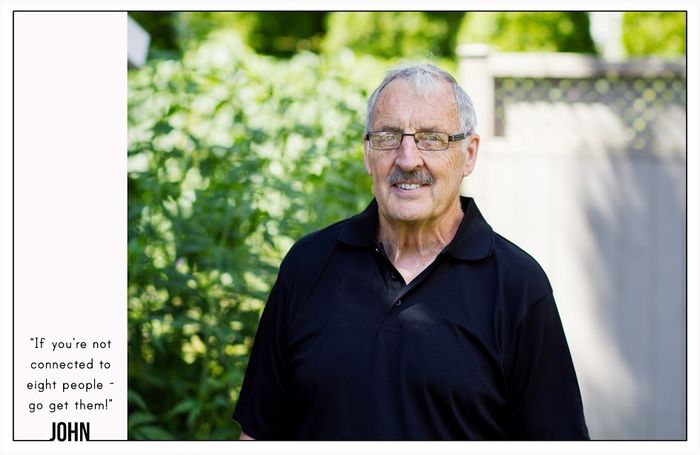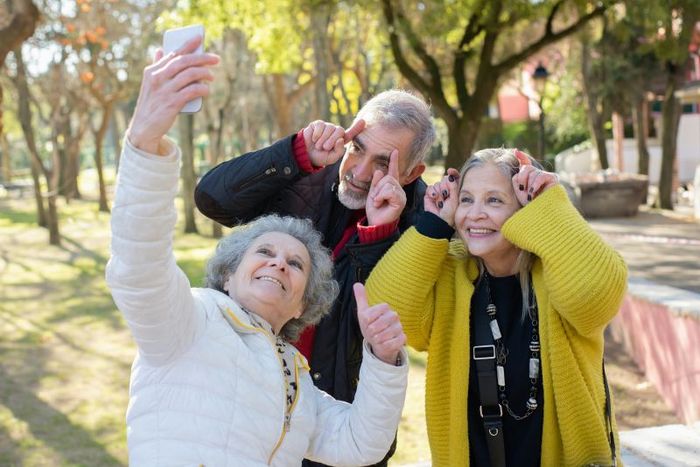The Value of Friendships by the Numbers

Let's face it: We live in a culture obsessed with hitting the "right number"—whether it's accomplishing health benchmarks like the daily targeted 6,000 steps (especially if you're over 60), counting calories, or maintaining optimum A1C or cholesterol levels. Even social connections have been quantified, with experts weighing in on the ideal number of friends one should have.
I've been thinking a lot about friendships, especially in our later years. That's why I've been so thoroughly absorbed in a little-known sitcom, which premiered earlier this year on the proudly Canadian CBC network, called Small Achievable Goals. Performed hysterically by Julie (Jennifer Whalen) and Kris (Meredith MacNeill), two women in middle age brought together by happenstance. They find themselves battling career changes, ageism in the workplace, and juggling a host of other common life transitions, including facing the realities of menopause.
While cleverly depicting the shame and stigma of certain biological changes that often accompany women in their age range, the show also beautifully highlights how having a confidante - someone who has your back and can provide you with solidarity and solace—is almost worth more than any cure for menopause. (Almost. A cure would still be nice.)
The ancient Greeks, with questionable toga fashion, plenty of harps, and time for philosophical reflection, didn't just give us epic, mythic characters - they also laid the groundwork for how we think about friendship, thanks in part to Aristotle.
"In his Nicomachean Ethics, he identified three types of friendships: utility, pleasure, and virtue. Friendships of utility are based on mutual benefit, such as business relationships where both parties gain something tangible. Friendships of pleasure are formed between individuals who enjoy each other's company, like sports mates or hobbyist groups. According to Aristotle, the highest form is the friendship of virtue, which is sown in mutual respect and admiration for each other's character. These virtuous friendships are rare and require time and intimacy to develop, as they are built on a foundation of shared values and the pursuit of a good life."
Aristotle understood something that we still discuss today—how friendship is essential for both our mental and physical well-being.
There has been extensive research and literature demonstrating that individuals with a larger number of strong friendships are better equipped to cope with stress and are more resilient to illness and disease. Some studies suggest that having a large circle of friends can lead to greater happiness and longevity.
However, Aristotle might disagree. He wasn't interested in quantity—he believed in the power of deep, reciprocated friendships. According to him, it's not about having a hundred acquaintances but having a few good friends who know us and push us to be our best selves.
Another scholar who explored friendships is Robin Dunbar, a British anthropologist and evolutionary psychologist, who theorized that humans should have no more than 150 meaningful relationships, a measure known as Dunbar's number.
“At birth, it starts at one or two. Friendships peak in the late teens and early 20s. By their 30s, people tend to have about 150 connections, and that number remains flat until people reach their late 60s and early 70s, when their number of connections, Dr. Dunbar said, "starts to plummet." "If you live long enough, it gets back to one or two."
As a woman in post-menopause, I can tell you that, much like my current estrogen numbers, my friendships are indeed dwindling. My support system has become quite small, and cultivating and strengthening meaningful friendships at this stage of my life has turned into a somewhat full-time hobby. I have read more than my share of countless articles advising me to volunteer or join a book club, but friendships also need to happen organically.
You want there to be a kind of spark; just like in a romantic relationship, there needs to be something that draws you toward a person. Added to the difficulty is the simple reality that many long-established friend groups aren't necessarily looking for new members. Being introduced into an existing circle often depends on timing and luck. While we can create our own luck, finding and making new friends takes hard effort and can remain elusive, nonetheless. An in-depth, great read on the subject is the book Big Friendship: How We Keep Each Other Close by co-authors Aminatou Sow and Ann Friedman
“As adults, we tend to become more selective about the types of relationships we pursue. Unlike in childhood, where friendships often form based on proximity and shared goals or activities, adults typically seek deeper connections built on common interests, values, and life experiences. Older adults are found to be much more selective, citing priorities such as trust as being influential in who they choose to befriend. Women find it especially harder to find someone who they deem trustworthy This increased selectivity can make it harder to find individuals with whom we truly connect on a meaningful level, leading to a sense of isolation or loneliness."
While I’m open to making new connections, I deeply cherish my close circle, including my extended family.
In the end, Aristotle's concept of friendships and wisdom still resonates and is more relevant than ever, particularly in this post-pandemic world of loneliness and social isolation. Rather than chasing an endless number of social acquaintances, appreciating and nurturing those few rare friendships should be all that matters.
To borrow another smart Greek philosopher’s line,
"A good decision is based on knowledge and not on numbers."
Related content







